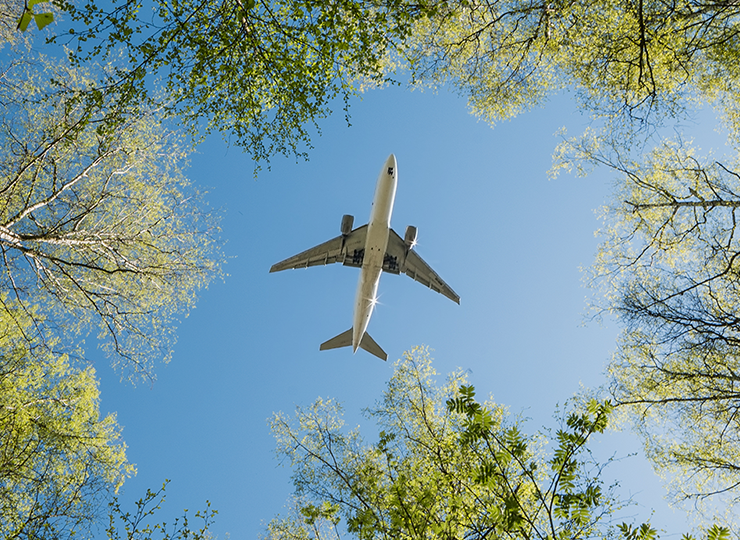

2024 Year End Review: Corporate and Leisure Travel Highlights
As we approach the close of 2024, it’s time to reflect on the dynamic landscape of corporate and leisure travel over the past year. This year-end review encapsulates the key trends, innovations, and shifting patterns that have defined travel experiences for both business professionals and vacationers alike. From evolving travel technologies to a growing focus on sustainability, 2024 has showcased significant advancements that are reshaping how we navigate the world.
Corporate Travel Trends and Shifts in 2024
In 2024, corporate travel has seen a marked resurgence as companies adapt to the post-pandemic landscape. One significant trend this year has been the rise of “bleisure” travel, where employees extend their business trips to include leisure activities. This approach has been widely embraced, with many organizations allowing employees to explore destinations while fulfilling their professional duties. Travel budgets have increased, reflecting a renewed confidence in the value of in-person meetings and relationship-building. Additionally, there has been a notable shift towards more flexible and employee-centric travel policies. Companies are now more accommodating of personal preferences, allowing for greater work-life balance. The adoption of sustainable practices in corporate travel has also gained traction, aligning with broader corporate social responsibility goals.
Major Tech Innovations Revolutionizing Travel Experiences
In 2024, the travel industry has embraced cutting-edge technologies to significantly enhance traveler experiences. AI has revolutionized travel planning by offering personalized recommendations and real-time itinerary adjustments, ensuring that trips are tailored to individual preferences and needs. Chatbots and virtual assistants have streamlined customer service, making it easier for travelers to modify bookings or obtain information on the go. Mobile applications have further simplified logistics, enabling features like mobile check-ins, digital boarding passes, and real-time flight updates, all accessible from a single device.
Additionally, the use of blockchain technology has increased transparency and security in transactions, from booking flights to securing accommodations. This technology is also being used to create immutable records for loyalty programs and travel histories, enhancing trust and efficiency. Virtual and augmented reality tools have allowed travelers to explore destinations and accommodations virtually before making decisions, offering a richer pre-travel experience.
Smart luggage equipped with GPS tracking and automated security features has become a game-changer, providing peace of mind and reducing lost luggage incidents. Furthermore, the integration of Internet of Things (IoT) devices in hotel rooms has enhanced convenience, offering guests control over room settings such as lighting and temperature through voice commands or mobile apps. These innovations are collectively transforming travel into a more seamless, personalized, and secure experience.
Sustainable Travel Initiatives Gaining Momentum
In 2024, sustainable travel initiatives have gained significant traction, driven by a growing awareness of climate change and environmental impact. Both corporate and leisure travelers are increasingly prioritizing eco-friendly practices, prompting airlines and hotels to adopt greener strategies. Carbon offset programs have become a popular way for travelers to mitigate their emissions by investing in environmental projects such as reforestation and renewable energy. FMany companies are encouraging employees to choose eco-friendly accommodations that adhere to green certifications and sustainability standards or including these in their travel policies.
The travel industry is also seeing a shift towards promoting local experiences that support community economies and preserve cultural heritage. Tour operators and travel agencies are curating itineraries that focus on low-impact activities and conservation efforts, appealing to environmentally conscious travelers. Additionally, the use of renewable energy sources and waste reduction programs in hospitality has surged, with hotels implementing measures like solar panels, water recycling systems, and plastic-free policies.
These efforts not only help reduce the carbon footprint of travel but also enhance the overall travel experience by connecting tourists with authentic, sustainable practices. The push for greener travel is becoming more than just a trend; it’s evolving into a core component of the travel industry’s future, resonating with a growing demographic of eco-aware travelers.
The Impact of Remote Work on Travel Patterns
The rise of remote work in 2024 has dramatically reshaped travel patterns, blending professional and personal life in unprecedented ways. With the flexibility to work from virtually any location, employees are taking advantage of “workations” — extended stays in destinations that allow them to balance work and leisure seamlessly. This shift has driven demand for extended-stay accommodations and coworking spaces, particularly in scenic and culturally rich locales. Businesses have adapted by offering more lenient travel policies that accommodate these new work habits, enhancing overall employee satisfaction and productivity. The ability to work remotely has also encouraged professionals to explore destinations off the beaten path, diversifying the travel landscape and stimulating local economies in less-traveled areas.
Popular Leisure Travel Destinations of 2024
In 2024, certain destinations have captured the hearts of leisure travelers for their distinctive offerings. Lisbon, Portugal has emerged as a favorite, thanks to its vibrant culture, historic architecture, and culinary delights. Tokyo, Japan continues to fascinate visitors with its blend of ancient traditions and cutting-edge modernity, providing a unique urban experience. Adventure seekers have flocked to national parks and remote locales, with destinations like Patagonia and New Zealand topping the list for their stunning landscapes and outdoor activities. Meanwhile, tropical paradises such as Bali and the Maldives remain perennial favorites for those seeking relaxation and luxury. Additionally, cities like Marrakech, Morocco, and Reykjavik, Iceland have gained traction, offering rich cultural experiences and breathtaking natural beauty. This year has also seen a rise in travelers opting for lesser-known gems such as Ljubljana, Slovenia and Porto, Portugal, which provide a more intimate and authentic travel experience.
Health and Safety Measures in Travel
In 2024, health and safety protocols have still been a critical focus within the travel industry, ensuring that travelers feel secure throughout their journeys. Airlines and hotels have continued to enhance their hygiene standards, implementing advanced air filtration systems and rigorous cleaning schedules. These measures extend to frequently touched surfaces and common areas, where sanitation practices have become more stringent to minimize health risks.
Vaccination and testing requirements have become more streamlined and standardized, allowing for smoother travel experiences across different regions. Many destinations now require digital health passports, which store vaccination records and test results, simplifying the verification process at airports and hotels. This technology not only speeds up check-ins but also reduces physical contact, contributing to safer environments for travelers and staff alike.
The travel industry has also adapted by offering more flexible booking options, allowing travelers to modify or cancel reservations with greater ease should health concerns arise. Additionally, travel insurance providers have expanded their coverage to include health-related issues specifically tied to COVID-19 and other potential health crises, giving travelers added peace of mind.
Public transportation systems in major cities have also upgraded their health and safety measures, incorporating contactless payment options and regularly sanitizing vehicles. In-flight services have been adjusted to minimize contact, with many airlines offering pre-packaged meals and digital in-flight entertainment accessed via personal devices.
Hotels have embraced technology to enhance safety, utilizing mobile check-ins and digital room keys to reduce physical interactions. In-room services now often include sealed amenities and optional daily housekeeping to limit contact. These comprehensive health and safety measures ensure that, despite lingering global health concerns, the travel experience remains both secure and enjoyable for all.
Innovations in Corporate Travel Management Solutions
Innovations in 2024 have revolutionized corporate travel management, streamlining processes and elevating the overall travel experience for businesses. One notable advancement is the integration of comprehensive travel management platforms that combine booking, expense tracking, and traveler safety in a single, user-friendly interface. These platforms use advanced data analytics to provide insights into spending patterns and traveler preferences, enabling companies to make informed decisions and optimize their travel budgets.
Artificial Intelligence (AI) plays a significant role in these systems, offering personalized recommendations and automating routine tasks such as expense reporting and itinerary adjustments. Moreover, these platforms enhance traveler safety by providing real-time alerts about potential risks, such as sudden political unrest or natural disasters, ensuring that employees can travel with peace of mind.
Virtual payment solutions have also emerged, simplifying financial transactions and reducing the need for physical credit cards. This technology not only streamlines the payment process but also enhances security by minimizing the risk of fraud. Additionally, companies are increasingly adopting mobile apps that offer employees on-the-go access to travel itineraries, expense reports, and emergency contacts, ensuring they are supported throughout their journeys.
Lastly, the focus on traveler well-being has intensified, with companies offering health and wellness resources, including mental health support and access to fitness facilities, to ensure employees remain productive and comfortable while on the road.
The Evolution of Travel Accommodations
The landscape of travel accommodations has significantly evolved in 2024, offering a broader range of options tailored to modern travelers’ preferences. Traditional hotels are now competing with vacation rentals, boutique stays, and unique lodging experiences such as eco-lodges and glamping sites, appealing to those seeking more personalized and immersive stays. Smart technology integration has become a hallmark of contemporary accommodations, with features like keyless entry, customizable lighting, and in-room AI assistants enhancing guest comfort and convenience.
Accommodations are increasingly focused on sustainability, with many establishments implementing eco-friendly practices such as energy-efficient systems, water-saving initiatives, and the use of locally sourced materials. Hotels and rentals are also prioritizing wellness amenities, offering everything from yoga classes to spa treatments, catering to the growing demand for health-conscious travel experiences.
The rise of remote work has driven the demand for extended-stay accommodations, with many properties now featuring co-working spaces and high-speed internet to accommodate professionals on workations. Additionally, there is a noticeable trend towards integrating local culture into the accommodation experience, with properties offering locally inspired decor, regional cuisine, and curated cultural activities, allowing travelers to connect more deeply with their destinations. These developments reflect the shifting priorities and preferences of travelers, who increasingly value unique, sustainable, and experience-rich stays.
Consumer Preferences and Travel Behavior Shifts
In 2024, travelers have demonstrated a pronounced preference for unique and meaningful experiences, opting for adventures that offer deeper cultural immersion and personal enrichment. There’s a growing trend towards eco-conscious travel, with many individuals choosing destinations and accommodations that prioritize sustainability and ethical practices. The rise of digital nomadism has influenced a surge in demand for destinations that offer robust internet connectivity and work-friendly environments, blending the lines between work and leisure. Additionally, wellness travel has gained popularity, as more people seek out retreats and activities that promote physical and mental well-being. Flexibility remains crucial, with travelers valuing adaptable itineraries and the ability to make spontaneous decisions. Budget-consciousness is also a significant factor, driving interest in affordable yet enriching experiences. Finally, solo travel has seen a resurgence, as individuals embrace the freedom and independence it offers, while family and group travel focus on creating shared memories and bonding opportunities.
Predictions for Corporate and Leisure Travel in 2025
In 2025, we expect a continued evolution in the travel industry, with a significant focus on sustainability and advanced technology shaping the future of both corporate and leisure travel. The hybrid work model is expected to become more entrenched, driving the popularity of workations and long-term stays in destinations that offer both relaxation and robust work infrastructure. Environmental consciousness will likely steer travel choices even more, with travelers favoring destinations and accommodations that demonstrate a strong commitment to eco-friendly practices.
Technological advancements will further enhance travel planning and execution, with AI-driven personalization becoming more sophisticated, offering hyper-customized travel experiences based on individual preferences and real-time data. The integration of augmented and virtual reality tools will also improve the pre-travel decision-making process, allowing travelers to explore destinations and accommodations virtually before booking.
Corporate travel will continue to adapt to the new normal, with companies increasingly utilizing comprehensive travel management platforms to streamline processes and enhance employee safety. These platforms will leverage data analytics to provide actionable insights, helping businesses optimize travel spend and improve the overall travel experience for their employees.
On the leisure front, we can expect a rise in niche travel markets, including wellness retreats, adventure travel, and culturally immersive experiences. Travelers will seek out unique, off-the-beaten-path destinations that offer authenticity and enrichment. Flexibility and spontaneity will remain key, with a growing preference for adaptable itineraries that allow for last-minute changes.
Overall, the travel industry in 2025 is set to become more personalized, sustainable, and technologically advanced, catering to the evolving needs and preferences of modern travelers.
Are you ready to start the new year off right?
Contact 1000 Mile Travel Group today!



